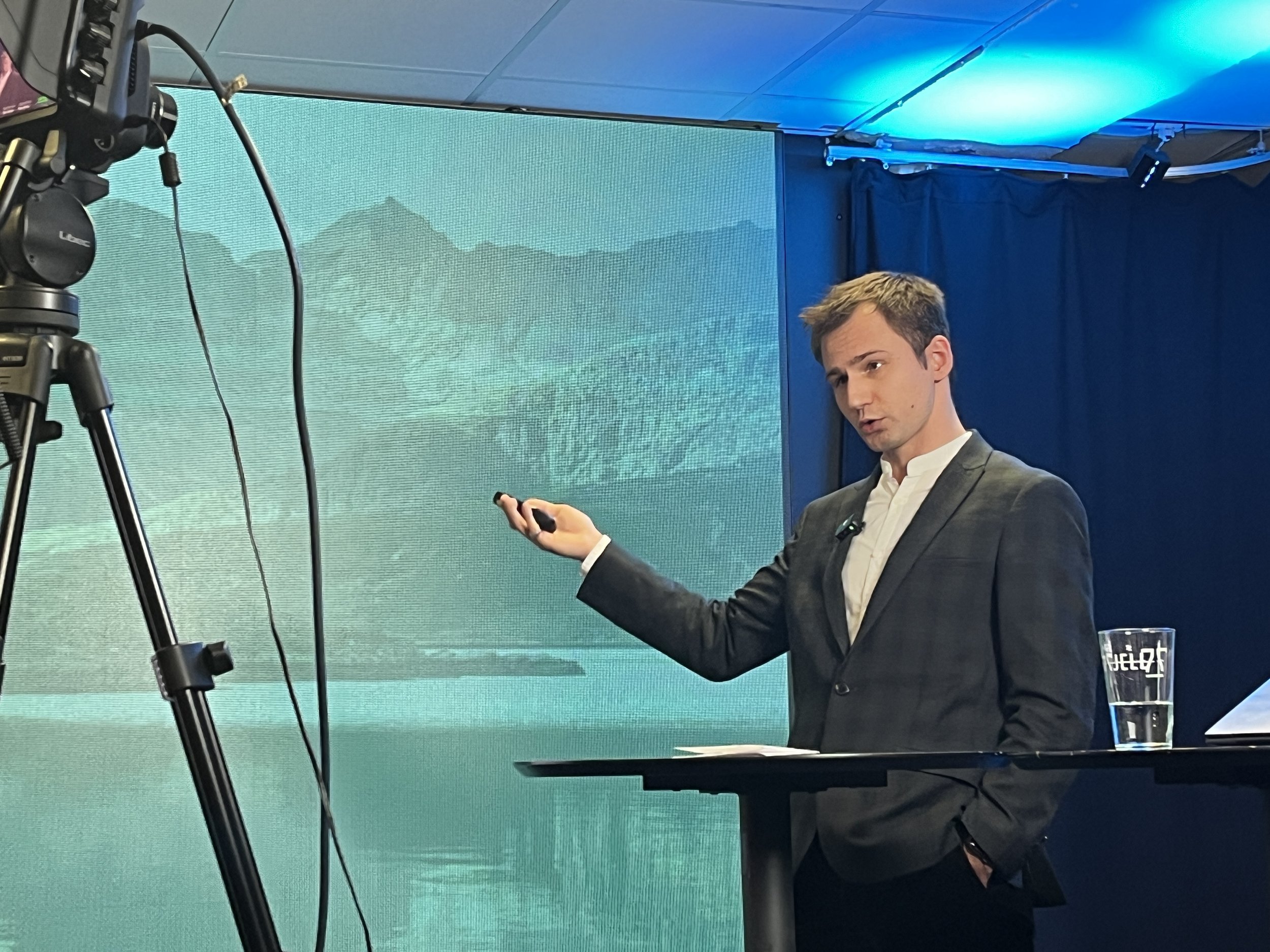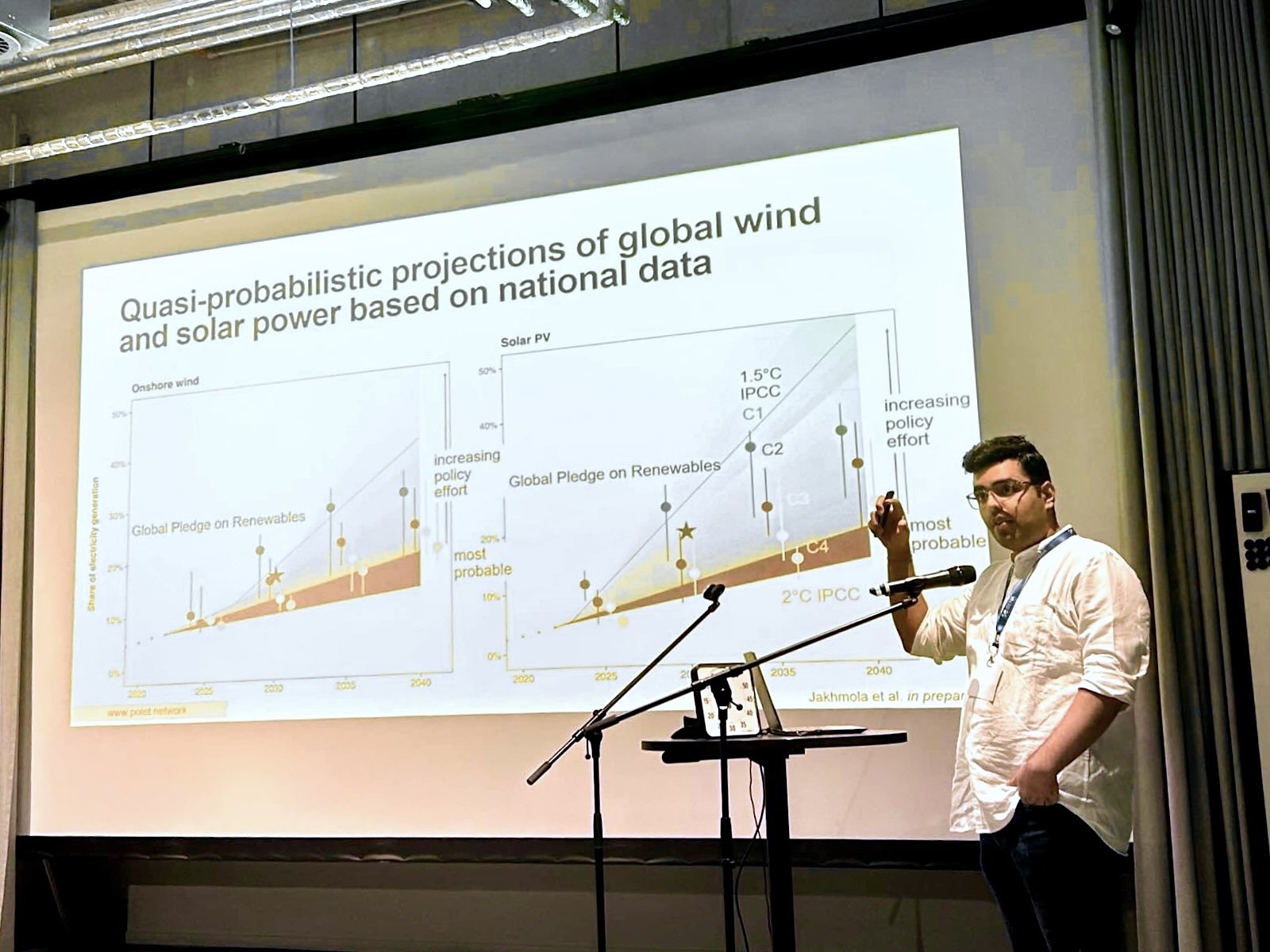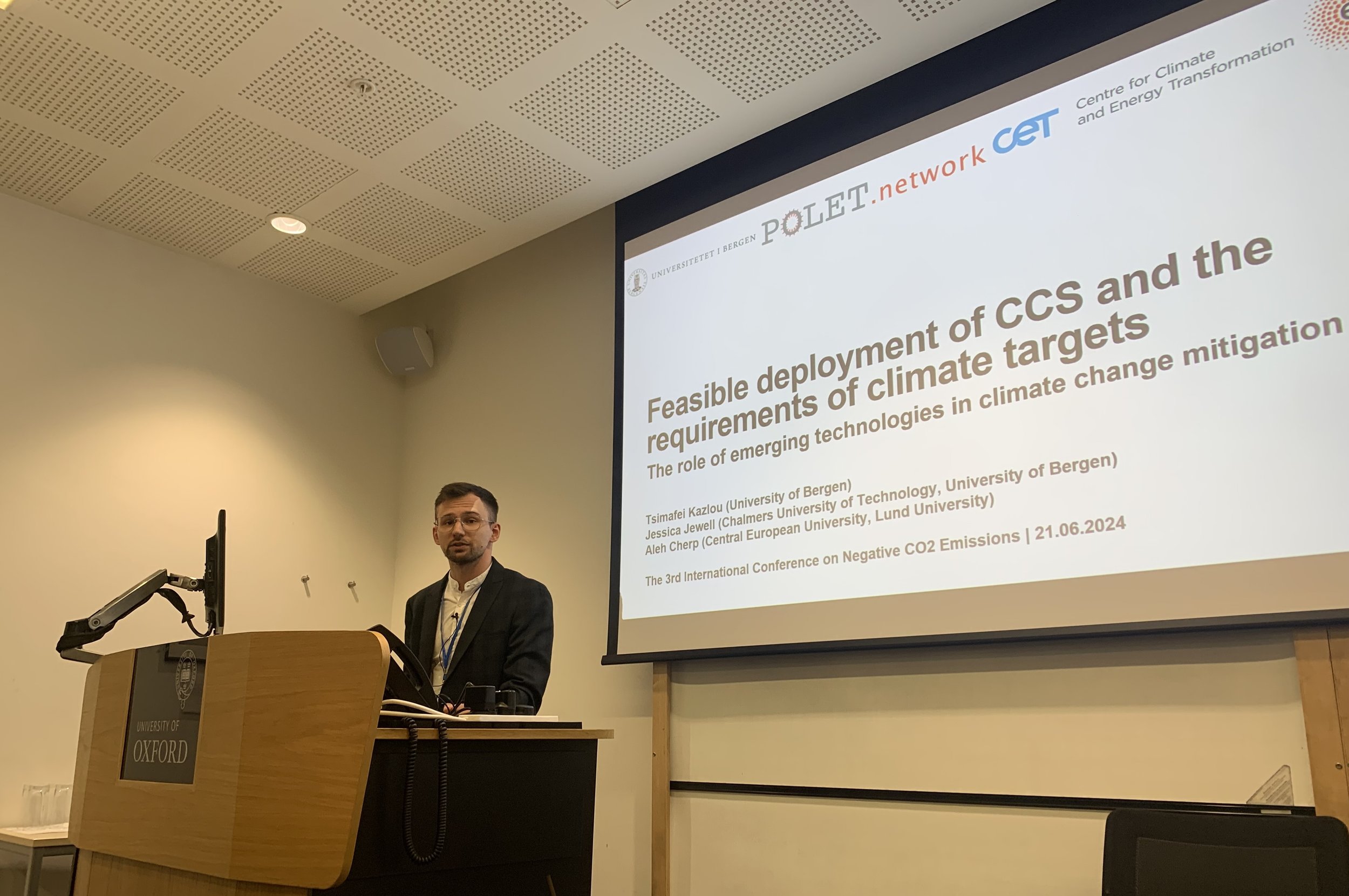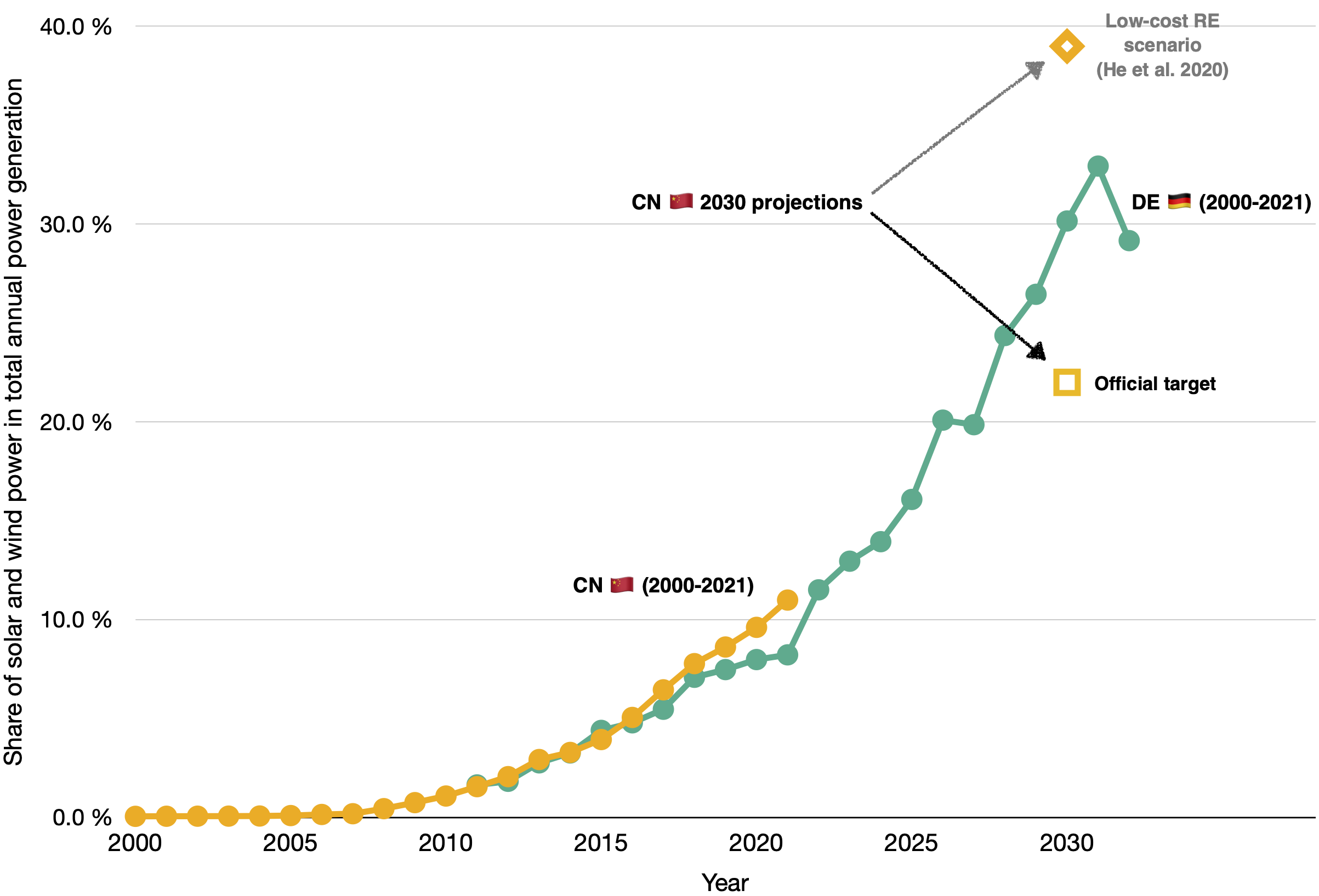POLET at Climate breakfast seminar and roundtable on the future of carbon capture and storage
Tsimafei Kazlou shared POLET research on the feasibility of carbon capture and storage technologies to Norwegian policymakers and industry representatives
Masahiro Suzuki defends his PhD and receives two scientific awards
Masahiro Suzuki defended his PhD summa cum laude at Central European University and receives two scientific awards for his research.
POLET at the International Energy Workshop 2024: Future growth of wind and solar power projected by historical national experience
Avi Jakhmola presented a method for projecting global technology growth using evidence from national deployment at the International Energy Workshop 2024 in Bonn, Germany
POLET at the 3rd International Conference on Negative CO2 Emissions: Feasible deployment of carbon capture and storage and the requirements of climate targets
Tsimafei Kazlou presented POLET research on the feasibility of carbon capture and storage technologies at the 3rd International Conference on Negative CO2 Emissions 2024 in Oxford, UK
POLET session at What Works Climate Solutions Summit 2024
POLET research group hosts session on accelerating energy transitions at What Works Climate Solutions Summit 2024 in Berlin
PhD or post-doc position at Chalmers University
POLET is recruiting either a PhD student or a Postdoctoral researcher to examine the interplay between energy policies. Come join us! Applications should be received by April 7th, 2024.
Renewables growth in China and normalising normalisation
Renewable power capacity additions in China often attract widespread attention for their sheer magnitude. But how useful are these raw numbers without considering the size of the country? Using installed capacity per capita and renewables’ share of national electricity production as illustrative examples, I make a case for normalising data when making inter-country comparisons. In addition to offering richer insights into the pace and extent of energy transitions, such analyses allow for a more nuanced view of change, help contextualise progress and set more realistic expectations.
Feasibility of decarbonising electricity in G7 by 2035
G7 countries and the European Union have committed to decarbonise electricity by 2035. Is this target feasible? We show that it would require expanding low-carbon electricity 4.5 times faster and reducing fossil-based electricity 2 times faster than in 2015-2020 between 2020 and 2035. Unfortunately in 2021, most G7 countries increased the use of fossils and slowed down the growth of low-carbon electricity, making it even more challenging to achieve the target by 2035.
Two post-doc positions at Chalmers University
Two post-doc positions on the dynamics of energy transitions at Chalmers University. One focuses on the economics and speed of energy transitions and the other on the diffusion and growth of technologies and infrastructures. Selection ongoing, we start reviewing applications August 29th, 2022.
Effects of Russia’s war on European coal phase-out
As the EU wrestles when it can implement its embargo on Russian coal, a larger question looms over the future of coal in Europe. Does the war in Ukraine and concerns over natural gas risk delaying existing coal phase-out plans? Here we investigate this question by examining the energy security situation in different countries as well as the statements EU countries have made about their coal phase-out plans.
Lessons for phasing out coal
At COP26, 46 countries signed the ‘Global Coal to Clean Power Transition Statement’, ‘consigning coal to history’, including significant coal consumers such as Indonesia and Vietnam. Translating the experience of just transition policies from developed countries to emerging and developing economies is a crucial policy challenge to help implement these commitments. We developed a diagnostic tool to help researchers and policy makers most effectively translate these lessons.
Feasibility of Germany’s newly proposed RES targets
The new German government aims to strengthen their RES targets to supply 80% of electricity by 2030. How challenging are they? What level of efforts is required to achieve them? I apply growth models and compare with other leading countries in developing renewables to discuss the feasibility of Germany achieving these targets.











